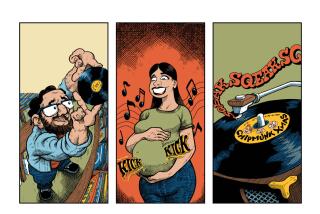COVER STORY : When Boomers Quit Buying, the Fat Lady May Sing Out
- Share via
Sales in the record industry jumped 7% worldwide in 1991 to more than $26 billion, and revenues are expected to fall roughly in that range this year, according to analysts.
Yet some industry observers see serious trouble ahead.
Recent figures, they say, are misleading because the business has been benefiting for years on sales to aging Baby Boomers buying old, catalogue product--i.e. Beatles albums--in new compact disc formats.
Once these consumers have purchased all of the catalogue items they want--and that time might be approaching--revenue may plummet because, the observers say, interest in new music is lagging among the post-25 buyers.
“I think the music industry is about to go through a cycle in the next two or three years which may be economically difficult,” says Rudi Gassner, president and CEO of BMG International.
“We are not recession-proof, as some would have you believe. There may come a time when selling back-catalogue is not so easy. In fact, we may have already reached a saturation point with some markets around the world.”
One way companies are thinking about bolstering future profits is to cash in on the latest advances in technology--the hopes of getting fans to start buying old, catalogue items once more, but this time in the new mini-disc or digital tape formats.
Some analysts predict, however, that the real key to manufacturer profits in the music business involves the conglomerate-owned labels cutting the record retailer out of the distribution cycle. The idea is to deliver music directly to consumers via telephone lines through elaborate international electronic distribution systems--possibly as soon as the year 2000.
More to Read
The biggest entertainment stories
Get our big stories about Hollywood, film, television, music, arts, culture and more right in your inbox as soon as they publish.
You may occasionally receive promotional content from the Los Angeles Times.









